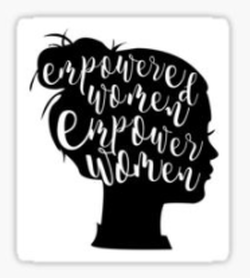 Intimate partner violence, or “IPV,” is defined by the World Health Organization (2012) as “any behaviour within an intimate relationship that causes physical, psychological or sexual harm to those in the relationship”(p. 1). Numerous pieces have been written on the lasting effects this kind of abuse can have on a person - especially emotionally, psychologically, and physically - but one effect that is explored far less frequently is the effect on a survivor’s economic independence and their ability to find, or keep, a job, both while currently living in an abusive home and after leaving. During our time at Liberty Lane thus far, we have been exploring these effects and the barriers that exist for IPV survivors seeking employment, and we have compiled our findings for you below! First of all, survivors of IPV may have been unable to maintain employment while suffering abuse, or they may have worked as homemakers; therefore, they may lack the necessary education or work experience required to obtain many positions (Keim, Strauser & Olguin, 2009). Employment empowers women through maintaining financial security and stability, increasing self-esteem and feelings of safety, and facilitating motivation and a sense of purpose in their lives (Keim, Strauser & Olguin, 2009). Economic self-sufficiency can be defined as being able to provide for oneself with little assistance (Interval House, 2016). Employability refers to being physically, emotionally, intellectually and psychology ready and able to be employed and having the skills to obtain and maintain employment and life stability (Interval House, 2016). There are a wide variety of barriers to employment that female survivors of IPV experience, which include the following: lack of housing, psycho-emotional issues, lack of documentation or personal identification, lack of food and clothing, a lack of child care or experiencing child-related issues and more (Interval House, 2016). Each woman experiences barriers uniquely, and when multiple barriers exist, they can exacerbate each other (Interval House, 2016). Conversely, confronting one barrier can alleviate others (Interval House, 2016). Barriers to employment impact women differently; this can depend on personal circumstances including age, education level, socioeconomic status, and geographic location (Interval House, 2016). Barriers can occur systemically through political trends or influence and institutional policy (Interval House, 2016). Barriers to employment and employability can be also be psychosocial including things like low self-esteem and experiences of stress (Interval House, 2016). For survivors who are able to work, on-the job harassment by abusive partners, workplace time reduction, and job loss are all consequences in which women suffering from IPV face while working (Showalter, 2016). These are identified as non-physical violence which includes, mental, emotional, financial abuse, as well as stalking (Showalter, 2016). Non-physical violence acts as a disruption to women in the workplace causing them to not perform to their full capacity. As Showalter (2016) writes, “In one study of women who experienced domestic violence, 61,4% of employed women were harassed on the phone at work and 39.2% were harassed in person” (p. 40). Another study by Tolman and Wang (2005) found that women who are victims of domestic violence “missed 137 hours of work per year or a 10% reduction in hours compared with women who have not experienced domestic violence” (Showalter, 2016, p.44). This is while keeping in mind that many of these women work low-wage jobs. Job loss and unemployment is another non-physical violent consequence experienced by IPV survivors (Showalter, 2016). In a study by Shepard and Pence (1988), it was found that 24% of female victims of domestic violence reported using their job due to the abuse they were suffering from (Showalter, 2016). Survivors of IPV may also experience mental health issues like anxiety, depression, or post-traumatic stress disorder (Keim, Strauser & Olguin, 2009). This can also play a role in limiting a survivor’s ability to find or maintain employment. A study by Adams et al. (2013) explored how IPV’s detrimental effects on a survivor’s mental health can impact their job stability. The study found that intimate partner violence “had a significant detrimental impact on women’s job stability for up to 3 years after the abuse had ended” (Adams et al., 2013, p. 605). Depression in particular was found to negatively impact a survivor’s job stability, suggesting a need for survivors to have better access to mental health supports, as well as a need “to investigate the dynamic, reciprocal relationship between job stability and mental health for IPV survivors” (Adams et al., 2013, p. 606). Overall, survivors of IPV experience many barriers to both finding and maintaining employment. It is important to for employers and and supporters keep these concerns in mind when working or speaking with survivors as IPV is a prominent problem that is often overlooked! By Lacie Hardy, Ally Loiselle, and Kathleen Chiasson Links to Articles: Adams, A. E., Bybee, D., Tolman, R. M., Sullivan, C. M., & Kennedy, A. C. (2013). Does job stability mediate the relationship between intimate partner violence and mental health among low-income women? American Journal of Orthopsychiatry, 83(4), 600-608. DOI: 10.1111/ajop.12053 (See below for PDF.) Interval House. (2016). Barriers to employability and employment for women survivors of intimate partner violence. Toronto, ON: Interval House. https://www.intervalhouse.ca/sites/default/files/IntervalHouse-Barriers_WhitePaper-web_16-11-16_0.pdf Keim, J., Strauser, D.R., & Olguin, D.L. (2009). Enhancing employment outcomes for survivors of intimate partner violence: A developmental work personality perspective. Journal of Employment Counseling, 46(3), 136-144. (See below for PDF.) Pilkinton, M. (2010). TANF recipients’ barriers to employability: Substance abuse and domestic violence. Journal of Human Behavior in the Social Environment, 20(8), 1011-1023. (See below for PDF.) Showalter, K. (2016). Women’s employment and domestic violence: A review of the literature. Aggression and Violent Behavior(31), 37-47. (See below for PDF.) World Health Organization (2012). Understanding and addressing violence against women. World Health Organization. Retrieved on October 24, 2017 from http://apps.who.int/iris/bitstream/10665/77432/1/WHO_RHR_12.36_eng.pdf
3 Comments
9/8/2018 07:22:47 pm
Very nice post, I certainly love this website, keep on it. :)
Reply
6/25/2019 07:31:51 am
Thank you for sharing a very good article about that, I know a lot
Reply
2/3/2022 10:20:23 pm
Nice content and very informative that everyone can refer throug it. Any form of violence is never been good and we need to help those who are in needs.
Reply
Leave a Reply. |
Recent News Archives
January 2020
Categories |
||||||||||||||||||||||||
General Inquiriesoffice hoursMonday - Friday, 9 am - 5 pm
Excluding Holidays |
|

 RSS Feed
RSS Feed